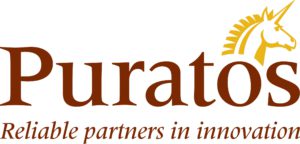Of course, it’s vital for life sciences companies to comply with the highest quality standards. But many other sectors are also increasingly investing in quality management. The ample experience that QbD has gained in life sciences can help them to realize this ambition. Take the example of bakery group Puratos, which called upon QbD for the validation of the cleaning and steaming cycles of its aseptic filling lines. While this project helped Puratos to optimize its production, it enabled QbD to break new ground.

From CIP to SIP
Now what’s the exact role of an aseptic filling line? Wim Steenackers: “Once a product has been pasteurized, we need to make sure that it cannot get contaminated anymore. That’s why it passes through an aseptic filling line, where it undergoes steam sterilization before ending up in various containers. To make sure this kind of sterilization is effective, ‘cleaning in place’ (CIP) and ‘steaming in place’ (SIP) always need to be performed.”
In the pharmaceutical industry, validating CIP and SIP cycles are common practice. Tests are performed and documented in a validation protocol, to prove that processes are fully under control. In the food industry, this kind of validation isn’t prescribed, so this project certainly opens future opportunities. While Puratos exceeds standards that are normally used in life sciences, which is an absolute first, QbD shows that it is ready to use its experience in various sectors. Food for thought!
Mutual appreciation & inspiration
Both Puratos and QbD can look back on an inspiring collaboration. Wim Steenackers: “At QbD, we certainly appreciated the fact that all documentation was available on time. Next to that, Puratos was always willing to answer any questions or review documents. On the client side, Puratos valued our pragmatic approach, our ample expertise in the validation of cleaning and sterilization cycles, and our proactive proposals for improvement.”
QbD managed to get the validation done in two months. As a result, the cleaning and sterilization process is now totally under control. Thanks to a thorough approach, Puratos does not only master the process, but has also tested and documented it. Currently, product validation is carried out to prove the system’s effectiveness. The product is now filled, just like it would happen during commercial production. After that, its shelf life will be tested in various ways – including worst case scenarios.
Overall, the validation of the CIP and SIP cycles lead to greater product quality. Less preservatives now need to be added to the product, as pasteurization and aseptic filling will ensure a longer shelf life. In other words: this really makes a difference for Puratos, its clients and the end consumers. And at QbD, we’re already looking forward to other projects that may come out of the oven!
This case shows that the ample experience QbD has gained in quality management can be applied in a wide range of sectors, from pharma to food – and many more. Wonder how we can make a difference for your company? Contact us now. We’ll be glad to listen to your needs and propose a tailored solution.